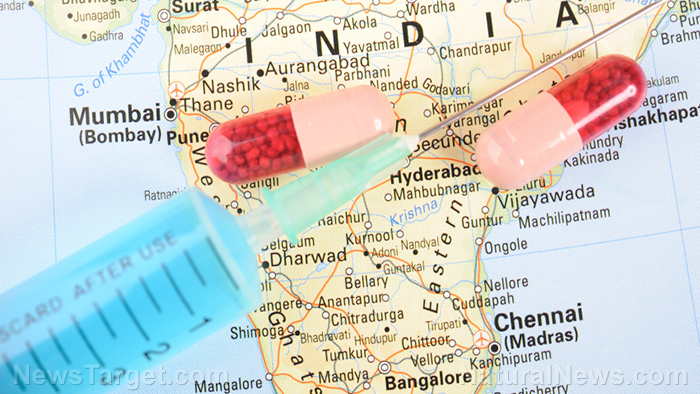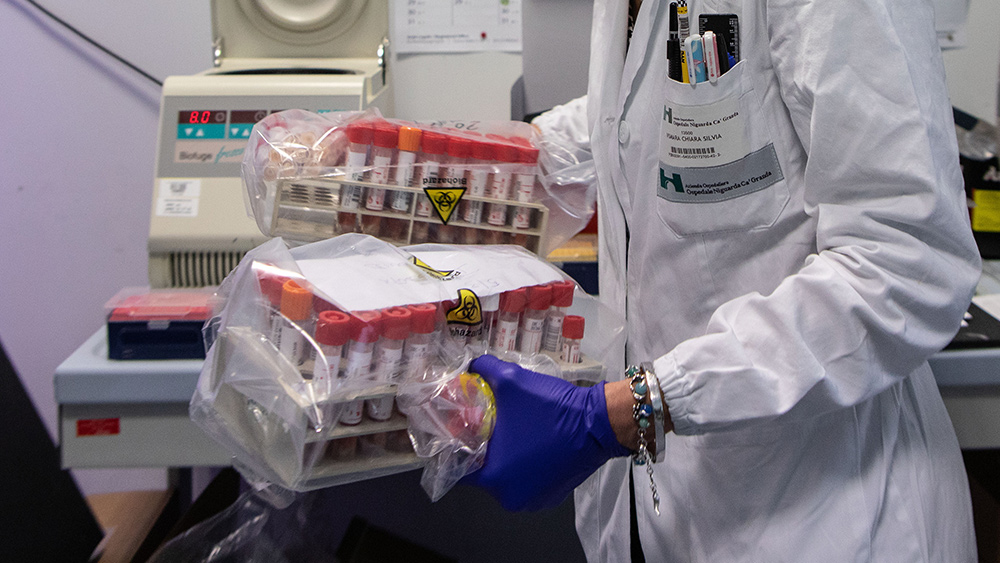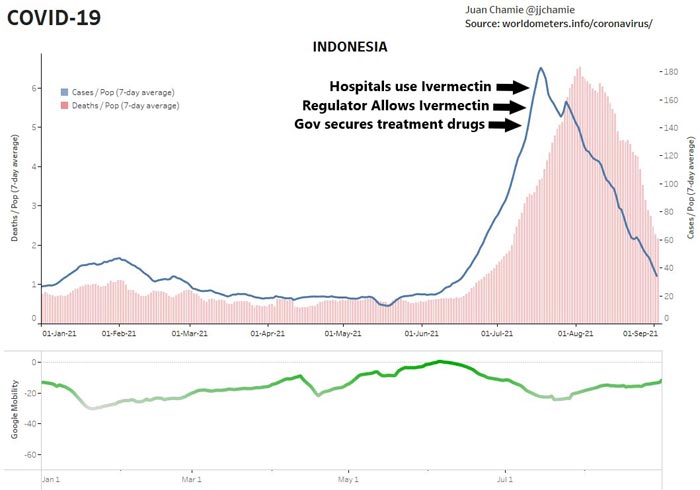Affordable coronavirus treatment kit responsible for India’s reduced infection and death rates, claim medical experts
01/27/2021 / By Evangelyn Rodriguez

While pharmaceutical companies continue to dish out fraudulent reports about the novel vaccines they’re trying to sell, researchers and medical experts have been trying to convince regulatory agencies to consider other options. There are safer, more effective and considerably less expensive treatments for COVID-19 than the vaccines currently being forced on the public, and some countries are already using them.
India has recommended the use of hydroxychloroquine (HCQ) and ivermectin in their national guidelines following the discovery of what these drugs can do against COVID-19. It turned out to be a good call as the country has less than half the number of coronavirus-related deaths compared to the United States despite being more densely populated.
As early as April last year, a study noted the potential of HCQ to reduce COVID-19 symptoms, including pneumonia, and speed up the recovery of infected patients. Although a similar article published months later in JAMA echoed these findings, the first study is yet to be published and is still pending peer review. HCQ has also been reported to lower hospitalization and mortality rates in coronavirus patients.
Ivermectin, on the other hand, caught the attention of the science community because of its ability to control the replication of the coronavirus and kill it within 48 hours. A Nobel Prize-winning anti-parasitic drug, ivermectin has repeatedly shown in studies that it can also prevent infections caused by the human immunodeficiency virus-1 (HIV-1), the dengue virus (DENV), the West Nile virus (WNV) and the influenza virus.
Countries in South America that opted to use these two drugs also experienced a significant decline in death rates near the end of 2020.
India offering affordable COVID-19 treatment kit that actually works
Ivermectin is a widely available medication that is used in both animals and humans to fight parasitic infections. Considered to be safe and effective, this versatile drug is included in the World Health Organization‘s (WHO) model list of essential medicines for basic healthcare. According to a study published in the journal Antiviral Research, ivermectin is also a potent inhibitor of SARS-CoV-2 in culture. Within 48 hours, the drug effectively reduced the amount of viral RNA in cells infected with SARS-CoV-2.
Since the release of this first report in April, ivermectin has been tested in numerous trials and has consistently produced positive results. In a randomized controlled trial submitted for review last October, Iraqi researchers reported that the combination of ivermectin and doxycycline – a broad-spectrum antibiotic – successfully reduced the recovery time of COVID-19 patients with varying disease severity. They also noted that the earlier these treatments are administered, the higher the success rate of the therapy will be.
In July, a panel of medical experts in India convened to discuss the possibility of using ivermectin for the prevention and treatment of COVID-19. An article written by some of the attendees reported that many of the physicians present “shared their personal experience of using ivermectin successfully with very good results in their patients.” The panel came to the conclusion that “ivermectin in the dose of 12 mg BD [twice daily] alone or in combination with other therapy for 5 to 7 days may be considered [a] safe therapeutic option for [mild to moderate] or severe cases of [COVID-19] infection.”
The following month, Uttar Pradesh, the largest state in India, announced that it would replace HCQ with ivermectin as its primary treatment for COVID-19. The government cited “encouraging results” in the city of Agra, where ivermectin was used on an experimental basis. By the end of 2020, India, which had been tackling nearly 100,000 daily cases and was expected to surpass the U.S., had successfully reduced its number of infections and fatalities to about one-fourth.
Uttar Pradesh, where free ivermectin for home care was distributed by the government, ended the year with the second-lowest fatality rate in the country at 0.26 per 100,000 residents. Bihar, a state in eastern India that also distributed ivermectin to its 128 million residents, had the lowest. In the neighboring country of Bangladesh, a similar decline in infection and mortality rates has been observed following the use of ivermectin and doxycycline combination therapy both at home and in hospitals in the capital city of Dhaka. Bangladesh has reported even lower fatality rates than India.
South American countries like Peru, Bolivia, Argentina and Brazil have also seen tremendous benefits from the use of ivermectin against COVID-19. In Australia, research by renowned triple therapy specialist Dr. Thomas Borody, also points to ivermectin as a possible solution for the COVID-19 pandemic. He recommends a triple therapy consisting of ivermectin, doxycycline and zinc to prevent or treat coronavirus infections. (Related: Zinc is an effective treatment for coronavirus infection, blocks viral replication.)
“No trial has shown Ivermectin-based therapy to be ineffective. In fact, international trials report almost 100% cure rate with symptom improvement within 4-6 days. This needs to be available for aged care facilities and frontline health workers today,” said Borody.
Despite the mountain of evidence supporting the efficacy of ivermectin, the Natural Institutes of Health (NIH) and the Food and Drug Administration (FDA) remained adamant in rejecting the drug for the better part of last year. But following a presentation by members of the Front Line Covid-19 Critical Care Alliance (FLCCC) early this year, the NIH has revised its treatment guidelines and finally considered ivermectin a treatment option for COVID-19.
India’s Ziverdo Kit, which contains ivermectin (12 mg one dose), doxycycline (100 mg once a day) and zinc acetate (50 mg once a day for four days), costs only $2.65 per person and has been on the market since last year. Supplementation with vitamin D3 once a week is recommended to make it a quadruple therapy.
For all the latest news regarding the coronavirus, visit Pandemic.news.
Sources include:
Tagged Under: antiparasitic, antiviral, coronavirus, covid-19 treatment, cures, current events, FDA, India, infections, ivermectin, NIH, outbreak, pandemic, prevention, zinc
RECENT NEWS & ARTICLES
COPYRIGHT © 2017 Antiviral.News
All content posted on this site is protected under Free Speech. Antiviral.news is not responsible for content written by contributing authors. The information on this site is provided for educational and entertainment purposes only. It is not intended as a substitute for professional advice of any kind. Antiviral.news assumes no responsibility for the use or misuse of this material. All trademarks, registered trademarks and service marks mentioned on this site are the property of their respective owners.



















